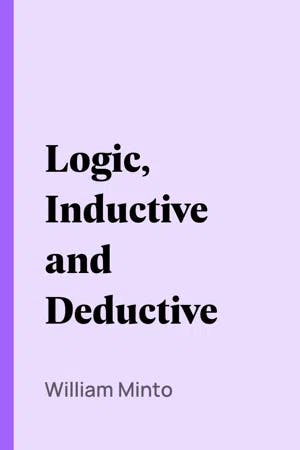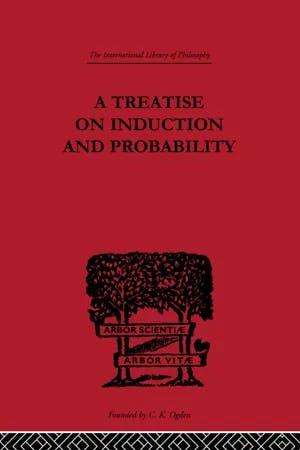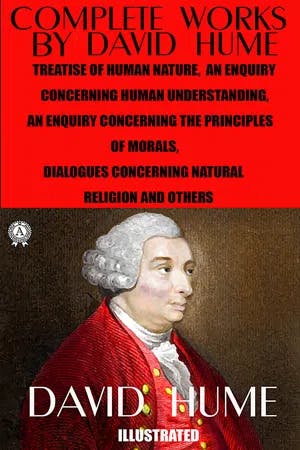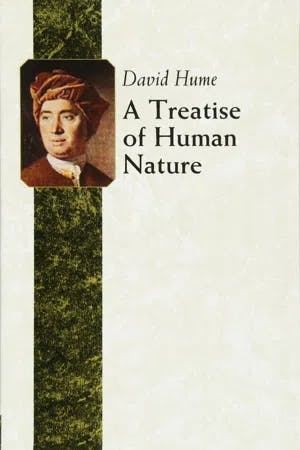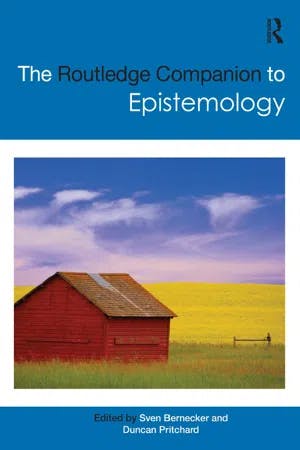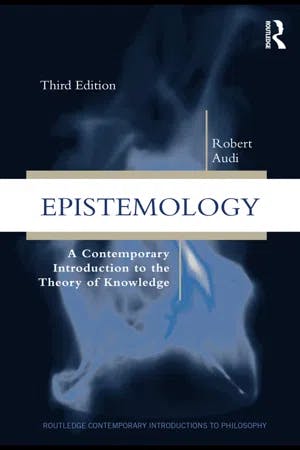What is Induction in Philosophy?
PhD, Media Arts (Royal Holloway, University of London)
Date Published: 14.09.2023,
Last Updated: 24.11.2023
Share this article
Defining induction
We are constantly appealing to our experience to help us understand the nature of the world around us. Experience is one important way we make claims about the makeup of the world; how things look, taste, feel and smell. We naturally do not consider individual experiences in isolation, instead we connect them; memory and anticipation form these experiences into wider knowledge claims about the nature of things, about cause and effect, about things we cannot have direct experience of. For example, we observe the sun rising every morning. It has been the case that, as every new day begins, the sun gives us light. This is an observation based on a repeated experience and, from this experience, we make inferences. We claim to know that the sun will rise tomorrow, and the next morning and the morning after that. This is what is known as induction or inductive reasoning. Induction is part of the larger epistemological questions of what knowledge is and how we acquire it. It describes a logical process whereby we make general claims based on specific experiences.
In inductive reasoning, we anticipate that the future will conform to our experience of the past. This seems to be a natural and essential part of cognitive function. It is how we develop beliefs about the way the world is and anticipations of the way it will be. But it is the task of philosophy to investigate these functions, to evaluate their accuracy and identify their fallibilities.
Induction is not only a critical function of the mind, but it is used in instances of authoritative knowledge acquisition, for example scientific investigation. If we do experiment X and get result Y over and over again, we eventually conclude that experiment X will yield result Y. This is the basis for the scientific method. For example, we know that copper conducts electricity or that gravity pulls things towards the earth because it has been discovered to do so time and time again. We conclude that, based on these past discoveries, copper or gravity will continue to behave in this way. This is just how ingrained and fundamental inductive reasoning is in our understanding of the world.
Many philosophers have tackled the question: to what extent can we know these inductive inferences to be correct? Induction relies on a very large assumption of the world and that is that the nature of things is fixed, uniform; that the way things behaved in the past is how they will continue to behave in the future. We will come to see how this assumption poses huge problems for empiricist philosophers in particular.
Inductive vs deductive reasoning explained
While induction may be a relatively new term for many of us, deduction is a word we are likely familiar with. Deduction and induction describe two types of reasoning. As William Minto identifies in Logic, Inductive and Deductive,
What they have in common may be described as the prevention of error, the organisation of reason against […] the errors of inconsistency. (2010)
WIlliam Minto
What they have in common may be described as the prevention of error, the organisation of reason against […] the errors of inconsistency. (2010)
We have seen how induction is a process of reason whereby specific instances are used to make general claims. This is known as the “bottom-up approach”. Deduction works the other way around through a “top-down approach”. Deductive reason takes general premises to make specific claims. As Georg Henrik von Wright describes it,
induction and deduction are, in a characteristic sense, inverse operations of the mind. (2017)
Georg Henrik von Wright
induction and deduction are, in a characteristic sense, inverse operations of the mind. (2017)
An example of deductive reasoning might look like this: if we know that all humans are mortal, and that Socrates is a human, we conclude that Socrates is mortal. This is how deductive reasoning functions; general knowledge claims are reduced and applied to specific instances. Deduction is structured in such a way that we can be logically certain of its conclusion. If the premises are true – that humans are mortal and that Socrates is human – then we can know that the specific claims drawn from those premises must be true. We do not need to have experience of Socrates’ mortality to know that he is mortal. So, we can claim to know a deductive conclusion a prior, through reason alone.
Inductive premises, in contrast, provide evidence for a conclusion, but they do not necessitate it. The fact that we have experienced the sun rise every morning in the past does suggest that the sun will rise tomorrow morning, but it is an inference that is not necessitated by the premises. The premise may be true, but the general claim about the world made from that premise could be either true or false. We will not know if inference about the sun rising tomorrow is justified or correct until tomorrow comes and we experience it. So, the conclusion of an inductive argument is probable but not logically certain.
While deduction provides certainty, distilling true premises to logical conclusions – true by necessity – induction draws conclusions that may or may not be true. Deduction mostly offers a complete instance of reason; its premises necessitate its conclusion. Induction is incomplete; its conclusions cannot be known to be true in certainty outside of experience.
Hume’s problem of induction
After the identification of induction as a standard cognitive procedure, the task then becomes to justify it as a means of knowledge acquisition. George Henrik von Wright briefly traces some of the significant attempts to do this, explaining,
Aristotle, who made the first attempt at a systematic treatment of induction, was already aware of the fact that inductive inference in our sense of the word has a non-demonstrative or inconclusive character. But Hume was the first to realize the full importance of this feature, in seeing that any type of argument, by means of which ‘we can go beyond the evidence of our memory and senses,’ is inductive and hence inconclusive. In view of this, it became a problem of first-rate importance, how to justify inductive inferences and, in particular, belief in the material truth of inductive conclusions. This is, in short, the problem of the Justification of Induction which is also rightly called the Problem of Hume. (2017)
Georg Henrik Von Wright
Aristotle, who made the first attempt at a systematic treatment of induction, was already aware of the fact that inductive inference in our sense of the word has a non-demonstrative or inconclusive character. But Hume was the first to realize the full importance of this feature, in seeing that any type of argument, by means of which ‘we can go beyond the evidence of our memory and senses,’ is inductive and hence inconclusive. In view of this, it became a problem of first-rate importance, how to justify inductive inferences and, in particular, belief in the material truth of inductive conclusions. This is, in short, the problem of the Justification of Induction which is also rightly called the Problem of Hume. (2017)
As von Wright outlines, it is Hume (1711–76) that is associated with identifying “the problem of induction.” Hume was an empiricist, meaning he believed the only knowledge we can claim to have is what we have had direct experience of. In opposition to rationalism, Hume believed the mind to be an empty receptacle, given content by experience of the world.
In approaching the idea of induction, Hume considers cause and effect. He writes,
Our idea, therefore, of necessity and causation arises entirely from the uniformity observable in the operations of nature, where similar objects are constantly conjoined together, and the mind is determined by custom to infer the one from the appearance of the other. These two circumstances form the whole of that necessity, which we ascribe to matter. Beyond the constant conjunction of similar objects, and the consequent inference from one to the other, we have no notion of any necessity or connexion. (1739–40, [2021])
David Hume
Our idea, therefore, of necessity and causation arises entirely from the uniformity observable in the operations of nature, where similar objects are constantly conjoined together, and the mind is determined by custom to infer the one from the appearance of the other. These two circumstances form the whole of that necessity, which we ascribe to matter. Beyond the constant conjunction of similar objects, and the consequent inference from one to the other, we have no notion of any necessity or connexion. (1739–40, [2021])
Hume claims that, rather than an objective fact, connecting effects to a cause is merely a mental habit or custom. We have observed two events in sequence – when I drop an object, it falls to the floor – so we naturally make a conclusion: gravity. But Hume claims there is no necessary causal relationship between two events. We connect them through habit. It is not logically impossible that, next time I drop an object it flies into the air. We get comfortable in the assumption that nature is uniform without actually having justification for that claim. In A Treatise of Human Nature Hume writes,
Our foregoing method of reasoning will easily convince us, that there can be no demonstrative arguments to prove, that those instances, of which we have had no experience, resemble those, of which we have had experience. We can at least conceive a change in the course of nature; which sufficiently proves, that such a change is not absolutely impossible. To form a clear idea of any thing, is an undeniable argument for its possibility, and is alone a refutation of any pretended demonstration against it. (1793 [2003])
David Hume
Our foregoing method of reasoning will easily convince us, that there can be no demonstrative arguments to prove, that those instances, of which we have had no experience, resemble those, of which we have had experience. We can at least conceive a change in the course of nature; which sufficiently proves, that such a change is not absolutely impossible. To form a clear idea of any thing, is an undeniable argument for its possibility, and is alone a refutation of any pretended demonstration against it. (1793 [2003])
We cannot have direct experience of cause and effect; it is an inference we make. Induction is no different. It rests on the same premise: that nature will behave as it always has. It is not a logical impossibility that nature change, however. So, Hume posits, we cannot claim to know things through inductive reasoning. He acknowledges that induction is a way that we make knowledge claims, and that we cannot simply do away with it, but he concludes that it is ultimately a fallible means of knowledge acquisition.
Circular reasoning
What Hume identifies is part of a larger critique of induction: namely, that induction exhibits the fallacy of circular reasoning. Circular reasoning, or what Aristotle dubbed “begging the question”, is when a rule or law is only justified through that same rule or law (Aristotle: The Complete Works, 2023). One of the pieces of evidence that is there to support or necessitate the conclusion, relies on the validity of that same conclusion. The process of reasoning is supposed to leave us with a conclusion we know to be true based on the truth of the premises. Looking at deductive reasoning, we can see how the conclusion is necessarily true by virtue of the premise; humans are mortal, Socrates is human, therefore Socrates is mortal. In this type of logic, the premises lead to the conclusion. That’s not to say that deductive reasoning is always valid, but as long as the premises are true, the conclusion will be.
Epistemic circularity, or premise circularity, explains one type of circular reasoning. This type of argument is often considered a fallacy or dilemma because it does not provide us with any certainty. For example, if Megan says she is honest, and you know that Megan doesn’t lie, you are likely to believe that Megan is honest. In order to believe Megan is honest, you have to believe she does not lie, but you have to believe Megan doesn’t lie to conclude she is honest. The premise for this argument relies on the truth of the conclusion, making it circular, and a logical fallacy; it proves nothing.
Many see induction as a process of reasoning that is epistemically circular. In order for induction to provide us with a justified knowledge claim, its true premises must provide a true conclusion. Induction relies on what Hume calls “the principle of the uniformity of nature”; that nature is stable and hence will continue to behave as it has been observed to do so in the past. But we may ask, how do we know that the past will resemble the future? The answer would be that, in the past, those inferences have been correct. If, on Monday I claimed that the sun would rise on Tuesday, and it did, that seems to be justification for using that type of reasoning moving forward. But we see here how the conclusion brings us back to that original question: how do we know that the past will resemble the future? Essentially, we justify induction through inductive reasoning itself. Hume asserted that, when the premise of an argument relies on the truth of the conclusion which, in turn, depends on the premise, it is a circular argument which offers no certainty.
Some types of circular arguments are indeed a logical fallacy. That being said, there is a position that supports circular arguments, claiming they can have logical validity. Another way to look at circular reason is through something called rule circularity. Rule circularity holds that we can in fact use a rule to justify the use of that rule. We don’t necessarily have to know the rule is justified to be justified in using it. As long as the inference allows us to deduce true conclusions using logic – that is, as long as the conclusion asserts something about the premise – we are entitled to make those inferences. An example of rule circularity might look like this: if an argument that reliably leads from true premises to true conclusions is justified, and induction reliably leads from true premises to true conclusions, then induction is justified. We see here how the premises do not depend on the conclusion in the way they do in epistemic circularity – the conclusion is not in the premises – but rather, the premises infer a rule that leads us to a conclusion about that rule.
While epistemic circularity is vicious, thinkers like R. B. Braithwaite (1900–90) hold that rule circularity is unproblematic because the use of the inference has been justified. In The Routledge Companion to Epistemology, Alexander Bird explains the way that rule circularity functions using “R” to represent the rule of induction:
We may be able to show that R is reliable, for example, by finding that R delivers true beliefs (e.g. predictions about the future that are subsequently verified) in a large number and variety of cases, while delivering no false beliefs (or only a few). If our rule of reasoning in this case is reliable, then by the reliabilist view of justification, our belief that R is reliable is itself justified. (Bird, 2011)
Edited by Sven Bernecker & Duncan Pritchard
We may be able to show that R is reliable, for example, by finding that R delivers true beliefs (e.g. predictions about the future that are subsequently verified) in a large number and variety of cases, while delivering no false beliefs (or only a few). If our rule of reasoning in this case is reliable, then by the reliabilist view of justification, our belief that R is reliable is itself justified. (Bird, 2011)
Although there are potential problems in the structure of its justification, inductive reasoning, despite often seen as a fallacy, just as often leads us to true conclusion.
Concluding thoughts
Induction facilitates many difficult epistemological questions. With reference to Hume’s skepticism, Robert Audi exemplifies these difficulties, writing,
Hume’s arguments lead us to ask whether, if our premises could be true yet our conclusion false, we have any reason at all, on the basis of the premises, for believing the conclusion. And how can we ever know the conclusion on the basis of such premises? Indeed, how can we even be minimally justified in believing the conclusion on the basis of such premises? The problem of induction, as most often understood, is largely the difficulty of adequately answering these questions. (2010).
Robert Audi
Hume’s arguments lead us to ask whether, if our premises could be true yet our conclusion false, we have any reason at all, on the basis of the premises, for believing the conclusion. And how can we ever know the conclusion on the basis of such premises? Indeed, how can we even be minimally justified in believing the conclusion on the basis of such premises? The problem of induction, as most often understood, is largely the difficulty of adequately answering these questions. (2010).
It could be argued that logical structures like the ones applied to undermine the validity of induction, are a narrow means of separating what is true from what is false. After all, as we have seen, induction in many cases can lead us to true conclusions. Despite the many who set out to prove induction does not hold validity, inductive reasoning is an enduring part of our cognitive function, helping us organize our experiences and make sense of the world.
Further induction reading on Perlego
Fallacies by C. L. Hamblin
Logic and Philosophy: An Integrated Introduction by William H. Brenner
Induction and Intuition in Scientific Thought by P. B. Medawar
David Hume's Theory of Mind by Daniel E. Flage
Induction FAQs
What is induction in simple terms?
What is induction in simple terms?
What is Hume’s problem of induction?
What is Hume’s problem of induction?
What is circular reasoning?
What is circular reasoning?
What is the difference between epistemic circularity and rule circularity?
What is the difference between epistemic circularity and rule circularity?
What is the difference between inductive and deductive reasoning?
What is the difference between inductive and deductive reasoning?
Bibliography
Aristotle and Books, B. (2023) Aristotle: The Complete Works. Bluefire Books. Available at: https://www.perlego.com/book/4087415/aristotle-the-complete-works-a-comprehensive-collection-of-timeless-philosophical-treasures-pdf
Audi, R. (2010) Epistemology. Taylor and Francis. Available at: https://www.perlego.com/book/1510187/epistemology-a-contemporary-introduction-to-the-theory-of-knowledge-pdf
Bernecker, S. and Pritchard, D. (2011) The Routledge Companion to Epistemology. Taylor and Francis. Available at: https://www.perlego.com/book/1610325/the-routledge-companion-to-epistemology-pdf
Bird, A. (2011) ‘Inductive Knowledge’ in The Routledge Companion to Epistemology. Taylor and Francis. Available at: https://www.perlego.com/book/1610325/the-routledge-companion-to-epistemology-pdf
Hume, D. (2003) A Treatise of Human Nature. Perlego. Available at: https://www.perlego.com/book/1716776/a-treatise-of-human-nature-pdf
Hume, D. (2021) Complete Works by David Hume. Strelbytskyy Multimedia Publishing. Available at: https://www.perlego.com/book/2698403/complete-works-by-david-hume-illustrated-treatise-of-human-nature-an-enquiry-concerning-human-understanding-an-enquiry-concerning-the-principles-of-morals-dialogues-concerning-natural-religion-and-others-pdf
Minto, W. (2010) Logic, Inductive and Deductive. Perlego. Available at: https://www.perlego.com/book/1715632/logic-inductive-and-deductive-pdf
Von Wright, G. H. (2017) A Treatise on Induction and Probability. Taylor and Francis. Available at:https://www.perlego.com/book/1489798/a-treatise-on-induction-and-probability-pdf
PhD, Media Arts (Royal Holloway, University of London)
Aoiffe Walsh has a PhD in Media Arts from Royal Holloway, University of London. With a background in film studies and philosophy, her current research explores British literary modernism, with a particular focus on surrealism between the wars. She has lectured and published pieces on documentary and film theory, film history, genre studies and the avant-garde.

